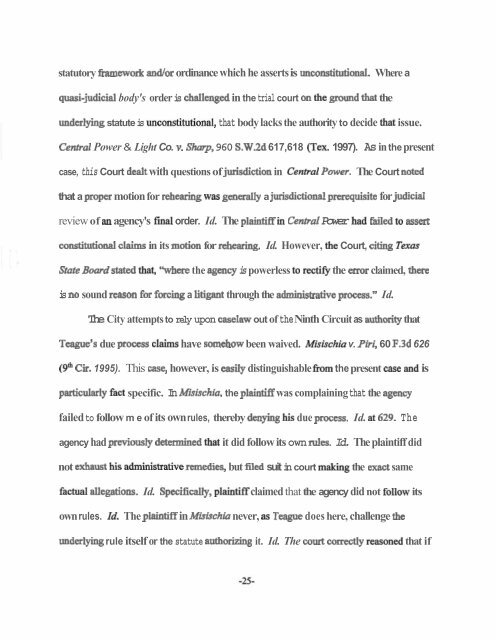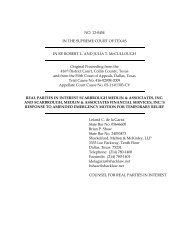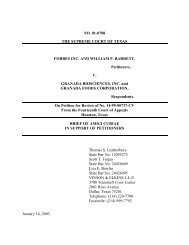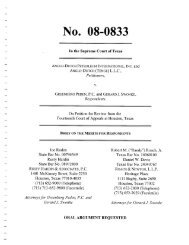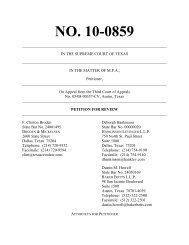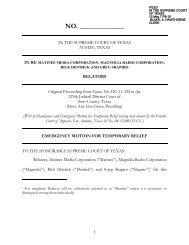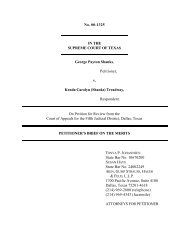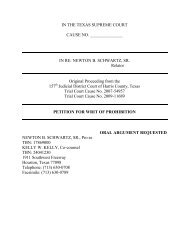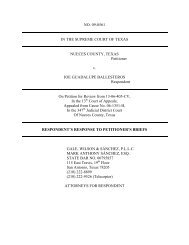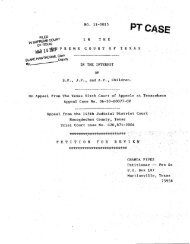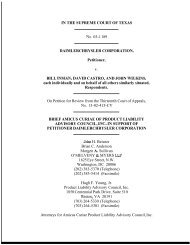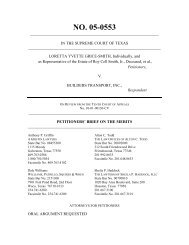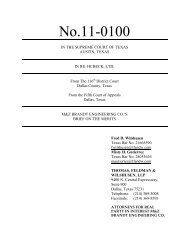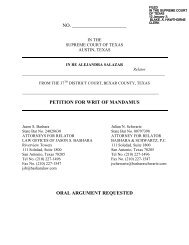You also want an ePaper? Increase the reach of your titles
YUMPU automatically turns print PDFs into web optimized ePapers that Google loves.
statutory framework and/or ordinance which he asserts is unc~titdod. Where a<br />
quasi-judicial body's order is chdlenged in the trial court on the ground that the<br />
underlying statute is tmconstitutiod, that body lacks the authority to decide that issue.<br />
Central Power & Light Co. v. Shp, 960 S.W2d 617,618 vex. 1997). As in the present<br />
case, this <strong>Court</strong> dealt with questions <strong>of</strong> jurisdiction in Cen&ul Power. The <strong>Court</strong> noted<br />
that a proper motion for rehearing was genera@ a jurisdictional prerequisite for judicial<br />
review <strong>of</strong> an agency's find order. Id. The plaintiff in Cenkal Power had MIed to assert<br />
constitutional clorims in its motion for rehearing. Id. However, the <strong>Court</strong>, citing Texm<br />
State Boardstated h t, 'Mere the agency is powerless to re- the emor claimed, there<br />
is no sound reason fim forcing a litigant through the administrative ~ess." Id.<br />
The City attempts to rely upon caselaw out <strong>of</strong> the Ninth Circuit as authority that<br />
<strong>Teague</strong>'s due process cIaims have somehow been waived. mis~Aia v. Pir, 60 F.3d 626<br />
(gm Cir. 1995). This me, however, is easily distinguishable from the present case and is<br />
particularly kt specific. In Mskchiu, the plaintiff was complaining that the agency<br />
failed to follow me <strong>of</strong> its own rules, thereby denying his due process. Id. at 629. The<br />
agency had previously determined that it did follow its own rules. Id. The plaintiff did<br />
not exhaust his admhkhtive remedies but fled suit in court m h g the exact same<br />
factual allegations. Id. Specifically, plain= claimed that the agency did not hUow its<br />
own rules. Id. The plaintiff in Mhhchla never, as Teagm does here, challenge the<br />
underlying rule itself or the statute authorizing it. Id. The court comedy reasoned that if


